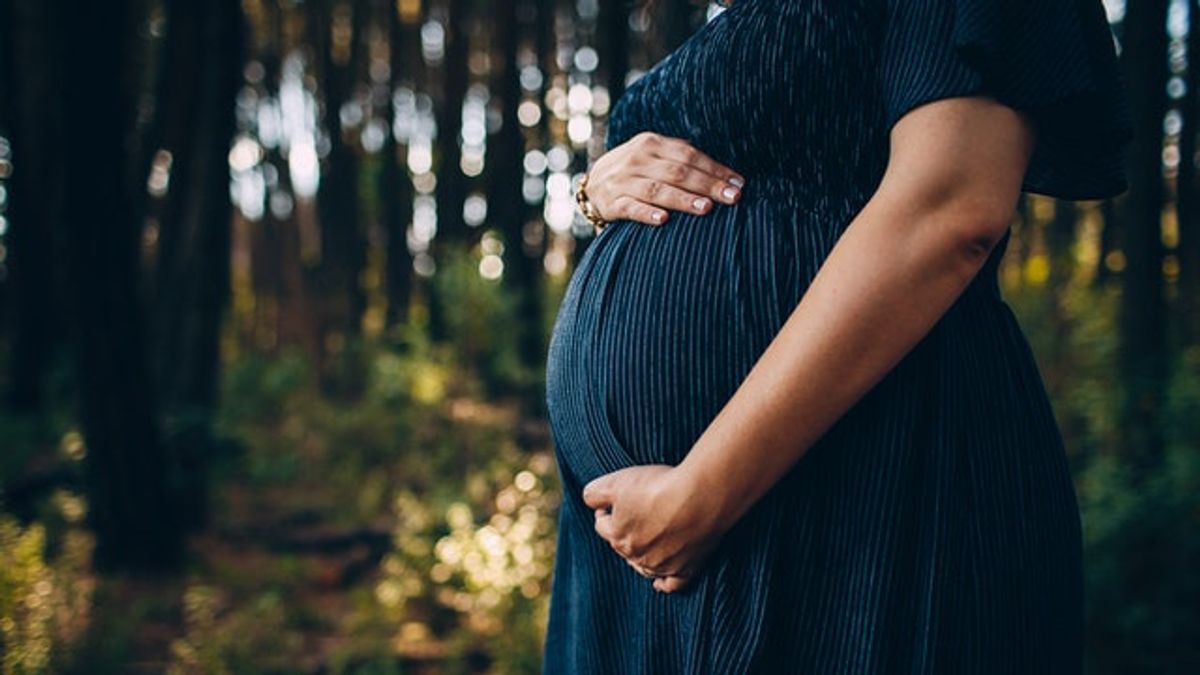JAKARTA - Pregnant women who are too fat are at risk of adverse health effects to their unborn babies. "Especially for obesity, obese mothers are twice as likely to suffer from preeclampsia," said Obstetrics & Gynecology Consultant Obstetrics & Gynecology (POGI) Prof. DR. dr. Dwiana Ocviyanti, SpOG(K), MPH, at a health event held online, quoted from ANTARA, Friday, April 29.
Preeclampsia is a pregnancy disorder characterized by high blood pressure and high protein content in the urine. If the mother gets this problem, there is a four-fold risk of giving birth to a baby with a low birth weight or IUGR (Intra Uterine Growth Restriction).
IUGR infants are twice as likely to experience stunting or short body condition due to chronic malnutrition caused by, among others, inadequate food intake or increased food needs of children because they have diseases such as infections. "Meanwhile, mothers with preeclampsia, on average, to help their mothers, we do not allow their mothers to become pregnant until they are full term. Some of them have their pregnancy terminated at a preterm period. Prematurity alone increases the risk of stunting twice," said the Chair of the Maternal Mortality Team (AKI).
Babies with small body weight during conception will not grow well, then plus he must be born prematurely then puts him at risk of stunting up to 7.5 times. "This is sad. Fat is not a good thing," said Prof. Ocviyanti.
The ideal weight of a mother to start pregnancy if the average height of women in Indonesia is 150-160 cm, then it should not be more than 60 kg. Then, during pregnancy the mother also needs to maintain her weight gain. In the first five months of pregnancy, if the mother's weight is normal, then it's okay if she doesn't gain weight. But even if it goes up, it should not be more than 6 kg throughout the pregnancy.
"We don't eat for two people. In the first five months of pregnancy, if you are of normal weight, you don't need to gain weight. It's okay to gain 1-2 kg. But if you are overweight, even during pregnancy, it shouldn't be more than 6 kg," said Prof. Ocviyanti. Talking about the risk of stunting children, actually not only come from obese pregnant women and experience uncontrolled weight gain, but also those with chronic energy deficiency (KEK) and anemia.
The latest Riskesdas data shows, as many as 17 percent of mothers with KEK conditions, while anemia is faced by around 50 percent of mothers. "There are already thin, 30-40 percent overweight, 50 percent of pregnant women are anemic, this is clearly at risk for stunting and maternal death," said Prof. Ocviyanti. So that this condition does not occur, he advises pregnant women to follow the steps that have been informed by the Ministry of Health, namely to undergo a pregnancy examination to a doctor, to ensure that they do not have the risk of CED, obesity, comorbidities from the start and are not anemic.
"If we can control this, we hope that the younger generation in 2024 will start with a declining stunting rate, later they will truly become the golden generation," he suggested.
The English, Chinese, Japanese, Arabic, and French versions are automatically generated by the AI. So there may still be inaccuracies in translating, please always see Indonesian as our main language. (system supported by DigitalSiber.id)








